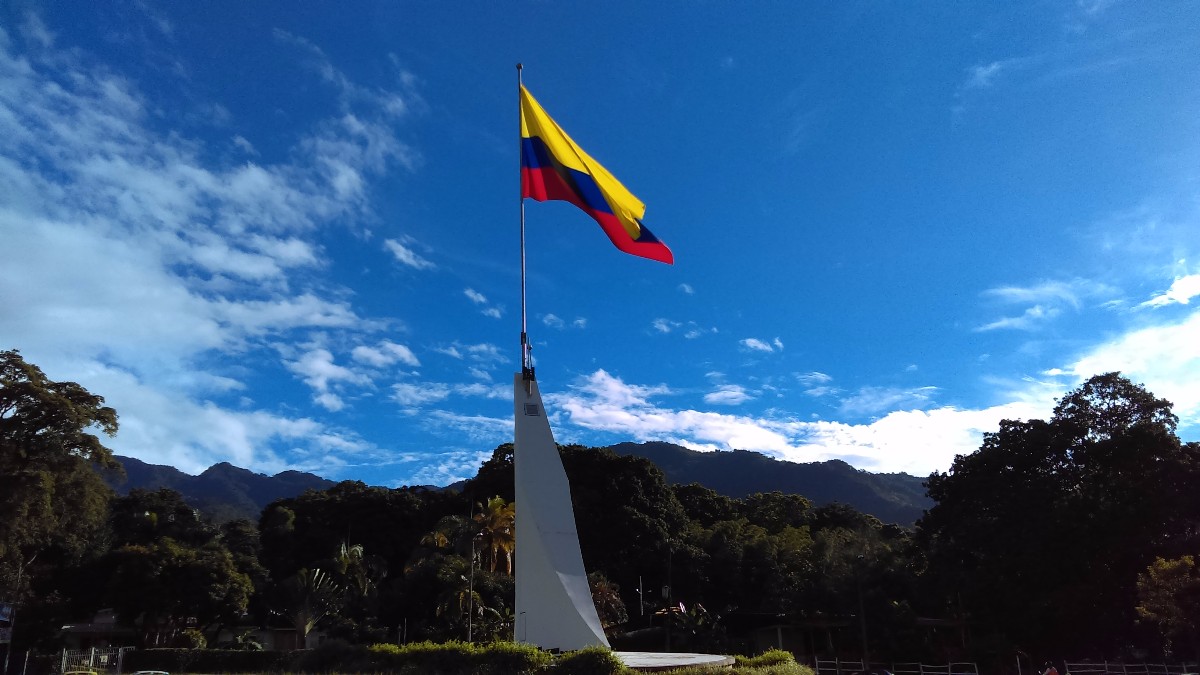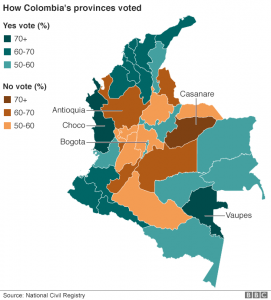 Photo Courtesy: Edgar Jiménez
Photo Courtesy: Edgar Jiménez
A Troubled Peace
A New Beginning
The civil war in Colombia has left hundreds of thousands dead, with millions displaced in the 50 years of fighting between the Colombian military and the Revolutionary Armed Forces of Colombia (FARC). The intensity of the fighting rose to its pinnacle during the early 2000s, which led Colombia to the dangerous precipice of becoming a failed state. To avert such a crisis, a peace process was facilitated by the government and the leaders of FARC over a period of four years. However, the peace process stalled in October 2016 when 50.24% of eligible voters voted against the accord, opposed to the 49.8% who favored it – a difference of less than 60,000 votes of 13 million. Why did this happen, and what role can the U.S. play in moving a sustainable peace forward?
Peace, Justice, or Inclusion: Aggravating Factors?
The dissolution of the referendum was evident. Many who voted for the referendum saw this as an opportunity to forgive the perpetrators, and look toward a sustainable future. Others, who voted no, were infuriated by the show of leniency and reduced sentences that would have been granted to members and senior officials of FARC if the referendum had passed. Furthermore, the government failed to take the prerogative in portraying the referendum in a positive light in rural areas of the country. Throughout decades of warfare, FARC has taken advantage of the lack of government presence, and proceeded to form ‘relationships’ with civilians that have known no other law and order other than what FARC has prescribed. This has led the rebel group to attain extensive support that it would not see in urban, government held areas.

A Pivotal Alliance
Throughout the later stages of the asymmetric conflict, the U.S. played an instrumental role of supporting and advising the Colombian military on its extensive counterinsurgency operations against FARC and other left-wing paramilitary groups. The diplomatic and military aid initiative, coined as “Plan Colombia,” solidified the country as a regional ally of America’s foreign interest in South America.
Now that the drums of war have been silenced, what approach should the U.S. take in order to ensure that regional stability remains paramount?
It would be imperative for the U.S. to adopt an advisory role that would assist the Colombian government as it manages the eventual democratic inclusion of FARC members. It also would be paramount for the international community, especially countries entrenched in the war against terror groups such as Daesh, Al-Qaeda, Al-Shabab and others, to be aware of the benefits of limited inclusion in democratic governance. For instance, if the referendum passed, FARC would have been allowed to form a political party with 10 seats in the country’s 268-member Congress. A permissible alternative to years of continued bloodshed and human suffering. In order for a long-lasting peace to prevail, the Colombians, supported by American developmental and democratic programs must reach out to disenfranchised groups, while forming and supporting institutions that provide a path toward stability, good governance, and social prosperity.






